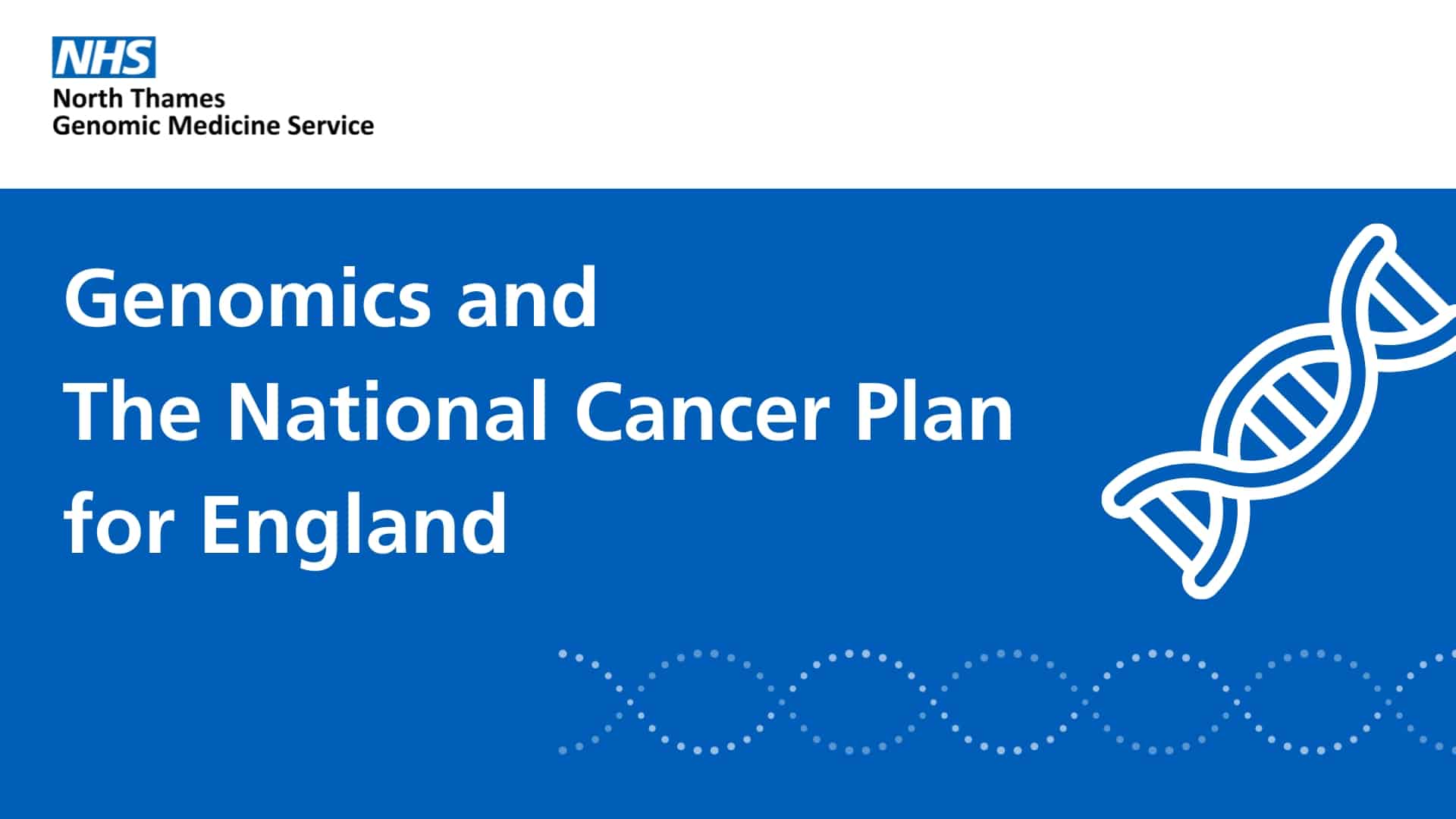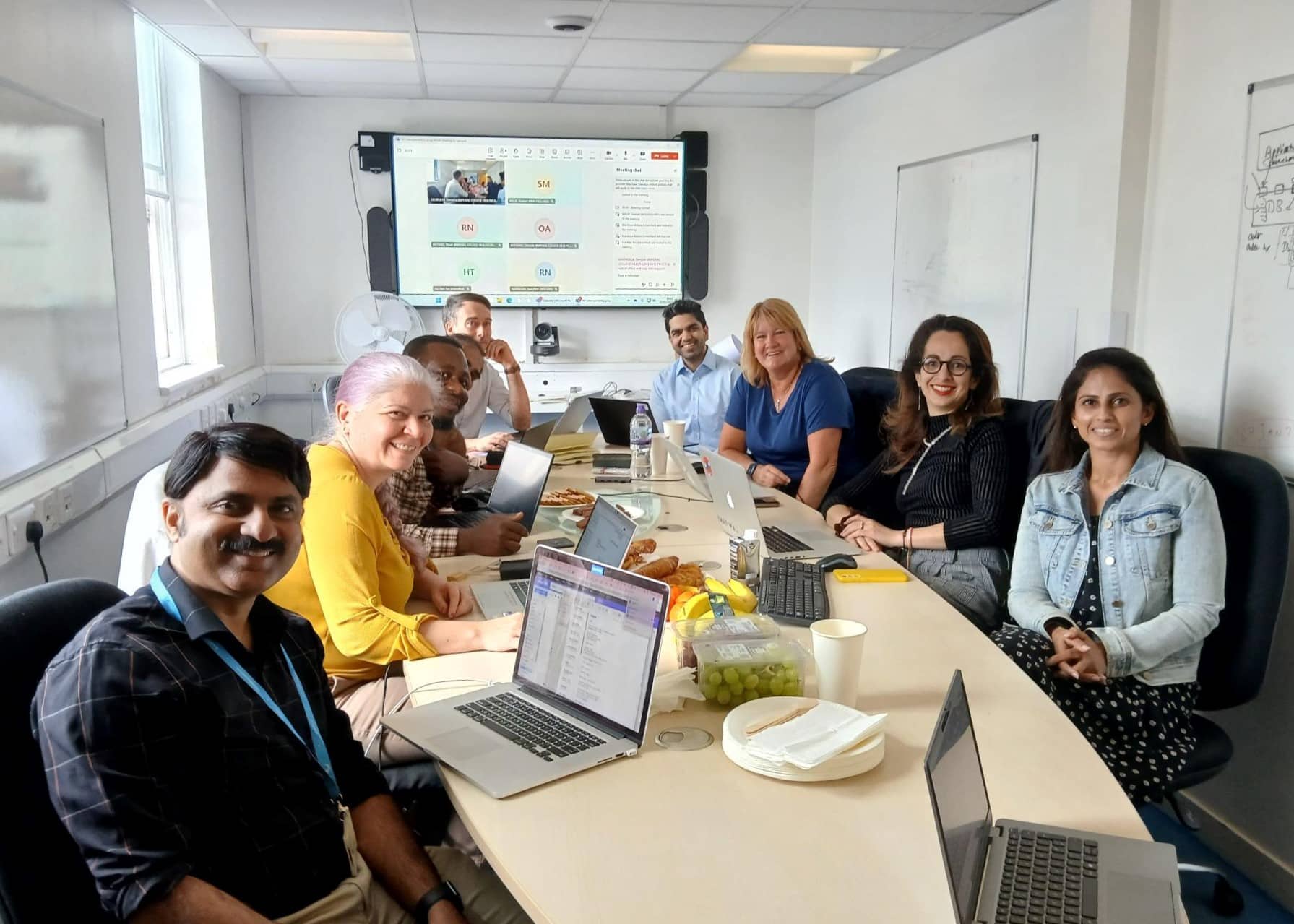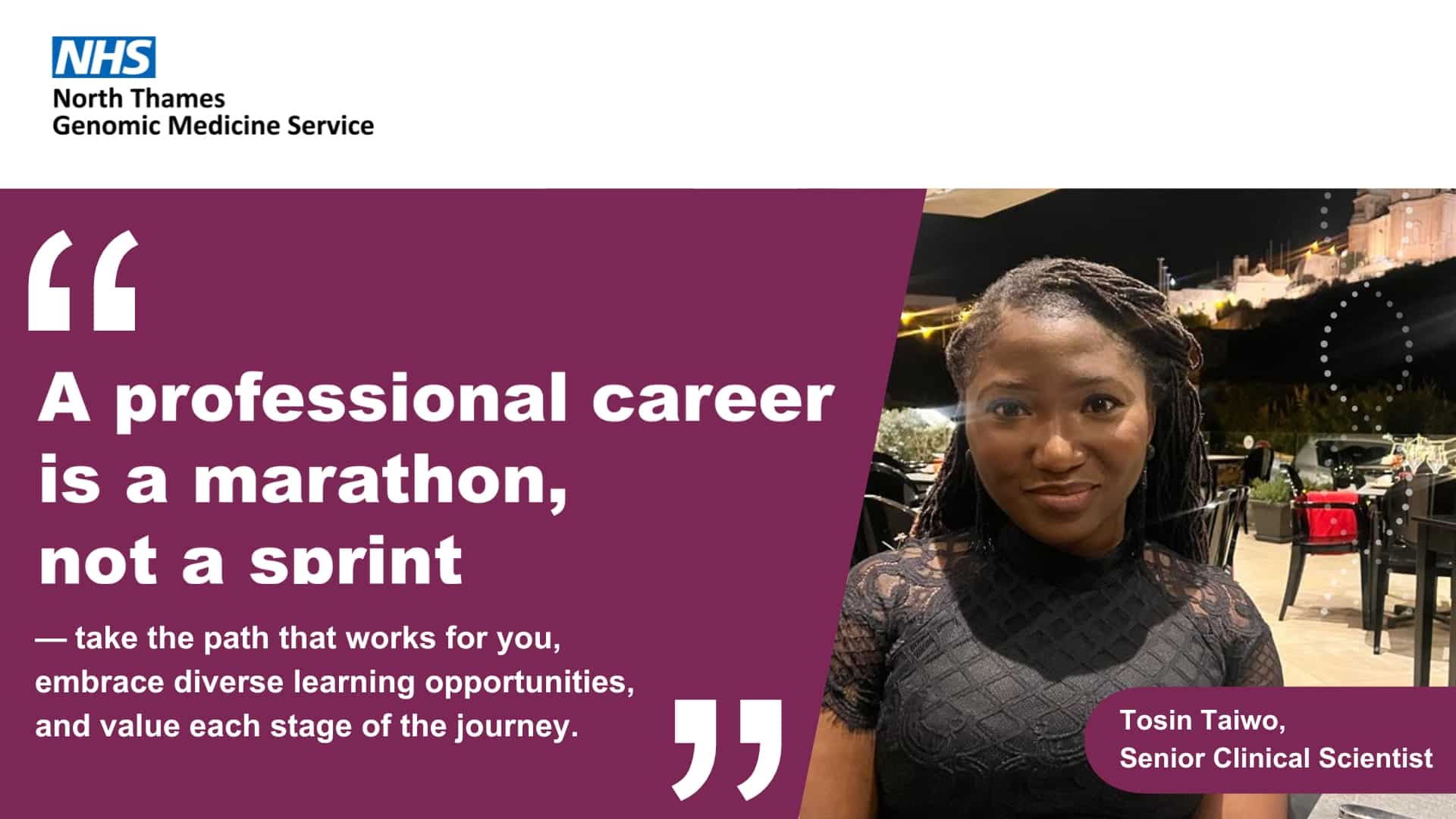Hayley Turgoose: From Clinical Scientist to Practice Educator – A Career Built on Curiosity, Communication, and a Love of Learning
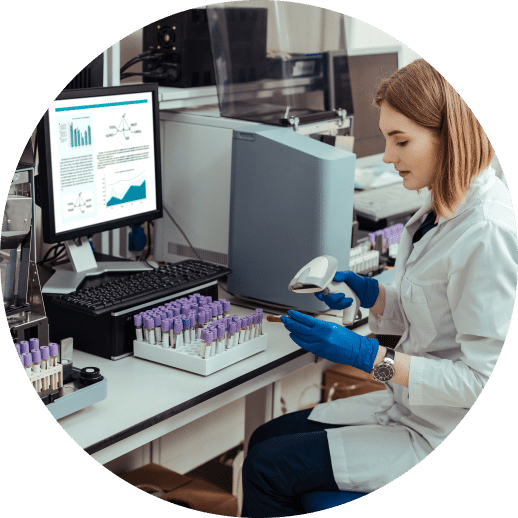
Blog
Hayley Turgoose: From Clinical Scientist to Practice Educator – A Career Built on Curiosity, Communication, and a Love of Learning
From analysing patient DNA to shaping the next generation of genomics professionals, Hayley Turgoose has built a career that blends scientific expertise with a passion for helping others learn. Her journey shows how skills gained in the lab can open doors to new ways of supporting and inspiring others in the field.
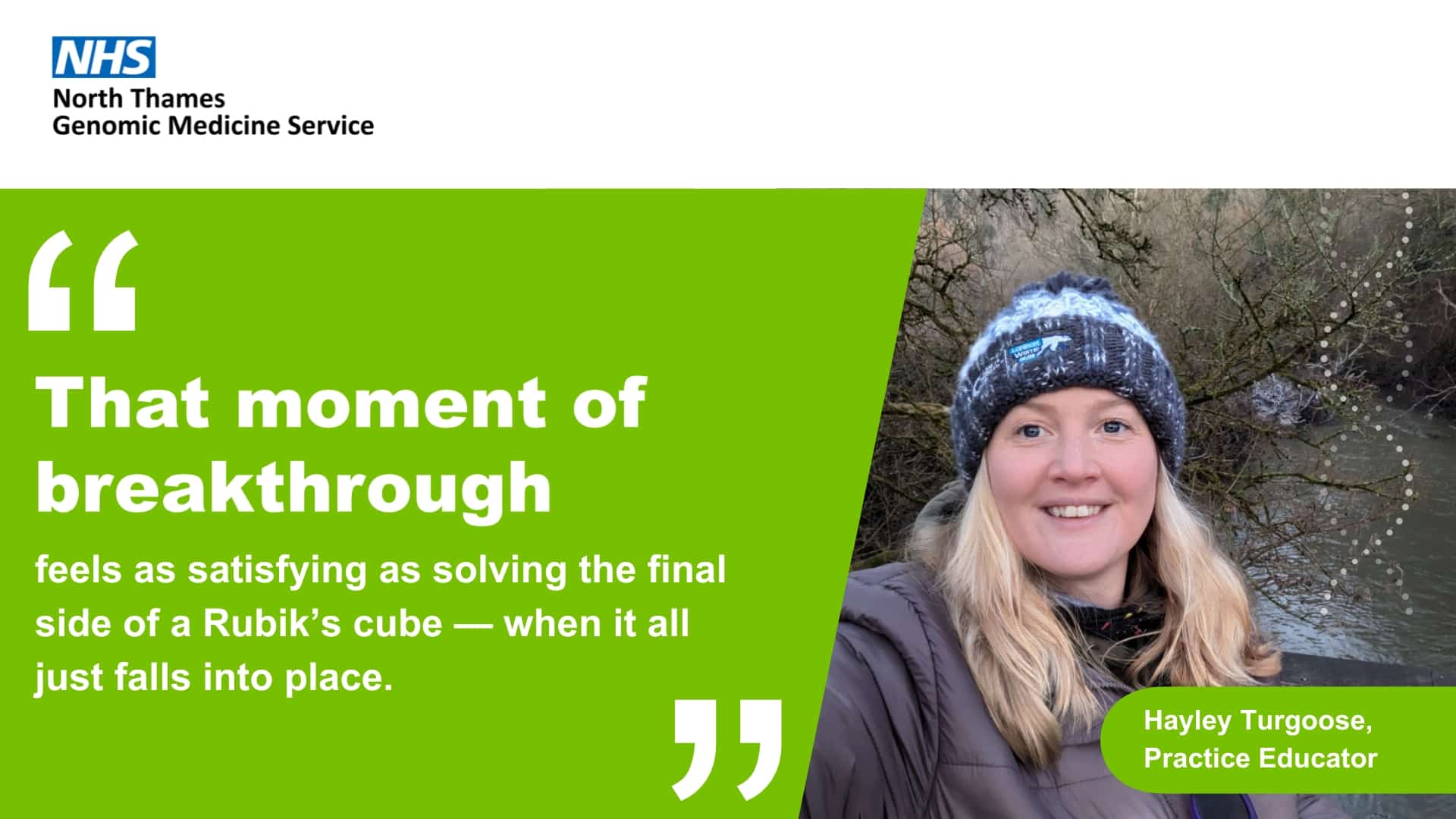
The Journey to Practice Educator
Hayley began her genomics journey on the Scientist Training Programme (STP) in Oxford where she spent three years training and studying for an MSc to become a clinical scientist in genomics. After becoming HCPC-registered, she then moved to London to work as a Clinical Scientist in the molecular genetics laboratory at Guy’s Hospital. Over the six years, she analysed patient DNA to look for mutations that cause a variety of different conditions such as melanoma (skin cancer), Cystic Fibrosis and muscular dystrophy.
Wanting a new challenge and to use her knowledge and experience to help and inspire others, she then started as a Practice Educator and Clinical Scientist at Great Ormond Street Hospital. She is also actively pursuing a postgraduate degree in Medical Education at UCL to complement her day-to-day role.
Reflecting on her transition into education, Hayley recalls, “The decision to move into a new role was scary but very exciting. I wasn’t entirely sure what it would look like, but I love to learn, grow and share knowledge with others who also have an interest in genomics. It’s a field that is constantly evolving, and there’s always something to learn even after years of being in the profession and it’s so important to have these kinds of role that give dedicated time to supporting education and training for the genomics workforce”.
The Difference Between Clinical Science work and Practice Educator work
“Being a practice educator is quite different from being a clinical scientist,” she explains. “You still need to have good scientific knowledge and skills, although an educator is much more people-focused. Education is very varied as you’re involved with lots of different people all the way from school students to heads of departments, you need to be organised as there’s often lots of different projects going on.”
Hayley still spends a day a week on clinical work to keep her skills and knowledge up-to-date, which is particularly important for training other people. “You really need to enjoy your subject. It’s always changing, and there’s always something new to learn.”
The Routes to Becoming a Practice Educator
There’s no set route to becoming a Practice Educator. “Usually people become NHS Practice Educators by first specialising in a particular field such as genomics, biochemistry or physiology and then develop a passion for educating and look out for practice educator opportunities further down the line when they’ve gained some experience,” Hayley explains.
Hayley feels fortunate that there is the GOSH Learning Academy, where many practice educators are primarily healthcare scientists by background. “It’s good to reach out and connect with educators and also take advantage of education and training opportunities such as formal courses, training and supervisor roles or just giving talks where you can. It all adds up and is invaluable experience!”
A Day in the Life of a Practice Educator
There’s no typical day as a practice educator. Hayley explains, “It all depends on what projects are on, and what education and training needs are active at the time.”
Examples of things Hayley has worked on include providing work experience for school students who are interested in healthcare science careers, writing the content for online genomics courses and organising virtual-reality training for medics in Clinical Genetics using the brand new VR headsets. She’s also involved with the STP – running training sessions in software skills, analysis and interpretation as well as supporting trainees through a monthly STP forum and with their professional development.
“One of the most rewarding parts of education is helping someone work through a complex idea. If they don’t understand it right away, you can try different ways of explaining until suddenly it clicks. That moment of breakthrough feels as satisfying as solving the final side of a Rubik’s cube — when it all just falls into place.”
Advice for Aspiring Science Educators
Hayley encourages those interested in education to recognise informal opportunities, even before moving into a dedicated role. “Looking back, I didn’t realise I was already doing education work when I was a Clinical Scientist — training new members of staff and pre-registration scientists, chairing Journal Clubs, attending multi-disciplinary meetings with doctors and medical specialists, promoting science in Healthcare Science week, delivering presentations and giving conference feedback. It all counts.”
She shares that these experiences can help you develop professionally and gain education skills. She also suggests it is helpful to build a network of healthcare educators, read up on education theory and stay up to date with the latest updates in your specialist area.
A final piece of advice from Hayley — “If there’s an opportunity, take it and see it as a compliment that you’re trusted to do a great job!”
“That moment of breakthrough feels as satisfying as solving the final side of a Rubik’s cube — when it all just falls into place.” – Hayley Turgoose, Practice Educator
August 21, 2025
